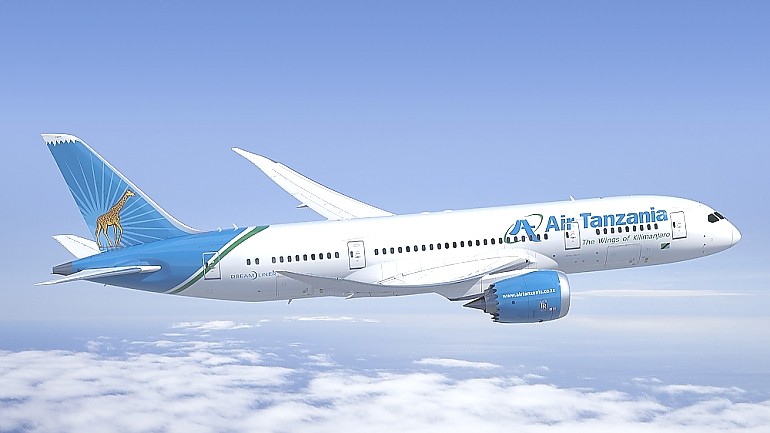Government has made an initial payment of 212,9bn/- for procurement of five planes, on its continued efforts to strengthen the national carrier, Air Tanzania Company Limited (ATCL). The payment is for two Dreamliners, two Airbuses and one Bombardier, as the government aims to have a total of 19 aircrafts by the financial year 2025/2026.
This was revealed yesterday by the Government Chief Spokesperson, Gerson Msigwa in Dodoma, saying the Government is determined to keep ensuring the ATCL wings increase the number for flights at all levels. "The aim is to enhance long-distance, medium and domestic flights by having enough planes," he assured. Mr. Msigwa, who doubles as the Director of Information Services, said the government has continued to release money for development projects to ensure all are completed on time.
He said last week, the government issued a total of 221bn/- on financing different ongoing projects and financing the implementation of fee free education policy. The payments in question include 50bn/- for implementation of Standard Gauge Railway (SGR), 50bn/- for Julius Nyerere Hydroelectricity Power Project (JNHPP), and 20bn/- that was channeled to finance fee free education policy. "Other institutions that received the funding include Road Fund Board (55,4bn/-) that was channeled for Road Fund Board, Rural Energy Agency (REA) that got 25bn/-, National Food Reserve Agency (NFRA) and the Mixed Crops Board (MCB) that got 14bn/- and 5bn/- respectively," he said.
Going forward, he said the Government has started to pay monthly allowances for local government councilors, whereas last week the treasury released a total of 1,6bn/- for the matter. In another development, Mr. Msigwa noted that a special committee formed by Prime Minister Kassim Majaliwa to investigate the cause of rising fuel prices in the country, will complete the assignment in two weeks. He said the Committee has already convened its first meeting on Friday, from which the whole task is expected to be concluded on September 16th this year.
Team members will be looking at indicators that are causing prices to rise, fuel handling procedures at the ports of Dar es Salaam, Tanga and Mtwara as well as a number of charges collected tagged in the petroleum products. They will also look at the formula being used to calculate the price and procurement system, upon completion of the assignment, the team will advise on what to be done accordingly.
On Wednesday, the Government suspended the new proposed fuel prices that were to come to effect from September 1st this year. The prices as proposed by the Energy and Water Utilities Regulatory Authority (EWURA) were historically higher and for the first time crossed one US Dollar a litre. The government's move was commended by some economists, noting that the proposed prices were threatening to bring the economy on its knees.
They said the hiked prices could mount pressure and strain the economy that is struggling to recover from the first, second and third waves of COVID-19 pandemic. An Economist-cum-Investment Banker, Dr. Hildebrand Shayo said the new prices could have led to ripple-effects on an array of already stressed sectors, such as transportation, agriculture and micro, small and medium enterprises that are currently grappling to get off the ground. "In fact, high fuel prices could have led to higher retail and food inflation at a time when the coronavirus pandemic has weathered the country's household savings," Dr. Shayo told the 'Sunday News'.
The suspended proposed prices pegged petrol at between 2,500/- and 2,800/- a litre while diesel was to be sold at between 2,300/- and 2,600/-. Dr. Shayo hailed the government intervention, saying the move could have pushed inflation up and led to a detrimental effect on the country's financially nervous households who cut expenditure essentials to pay for fuel induced costs. Another economist who preferred anonymity opined that high fuel prices would have led to a 30 percent increase in SMEs' operation costs and would have driven up the freight costs by up to 10-20 percent, leading to negative consequences to the economy.
